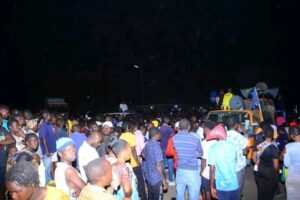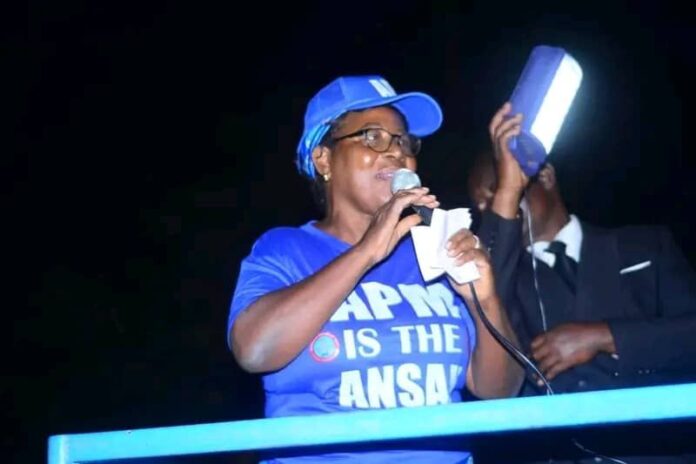By Burnett Munthali
Democratic Progressive Party (DPP) running mate Dr. Jane Ansah has reaffirmed the party’s commitment to restoring hope for Malawians, as she wrapped up her campaign activities in Mchinji District.
Writing on her Facebook page, Dr. Ansah said she was joined by the party’s Vice President for the Central Region, Alfred Gangata, in delivering a message of encouragement to the people.

She noted that wherever they stopped in Mchinji, including Nsundwe where supporters invited them to greet the people, the message from citizens was consistent.
According to Dr. Ansah, residents told her that they had suffered for the past five years and were ready for change.
“They said, tell our leader that we are prepared and ready to redeem ourselves. The vote we will surely give,” she explained.
Dr. Ansah emphasized that her central role was to remind the people that when casting their ballots, they must look for the image of DPP leader Arthur Peter Mutharika.
She added that voters should identify the party’s maize cob symbol, clearly marked inside the ballot box.
“What matters most is ensuring that the mark is made inside the box,” she stressed, reinforcing the importance of a valid vote.
She then urged Malawians to come out in large numbers on September 16 and cast their votes early in the day before the 4 p.m. deadline.
Her appeal called for discipline, patience, and peaceful participation in the voting process, highlighting the DPP’s readiness to reclaim leadership through the ballot.
Dr. Ansah’s message in Mchinji underscores the DPP’s focus on mobilizing grassroots support in rural areas, where frustrations over economic hardships have become a rallying point.
Political observers note that Dr. Ansah’s remarks reflect the DPP’s strategy of framing the 2025 elections as a choice between five years of economic struggle and a return to what the party portrays as more stable governance under Arthur Peter Mutharika.
By emphasizing voting discipline and the party’s maize cob symbol, she is also addressing common concerns about spoiled ballots in rural constituencies.
With Mchinji being a stronghold of competitive politics, the ability of the DPP to convert popular frustrations into actual votes may prove crucial in shaping the outcome of the elections.





